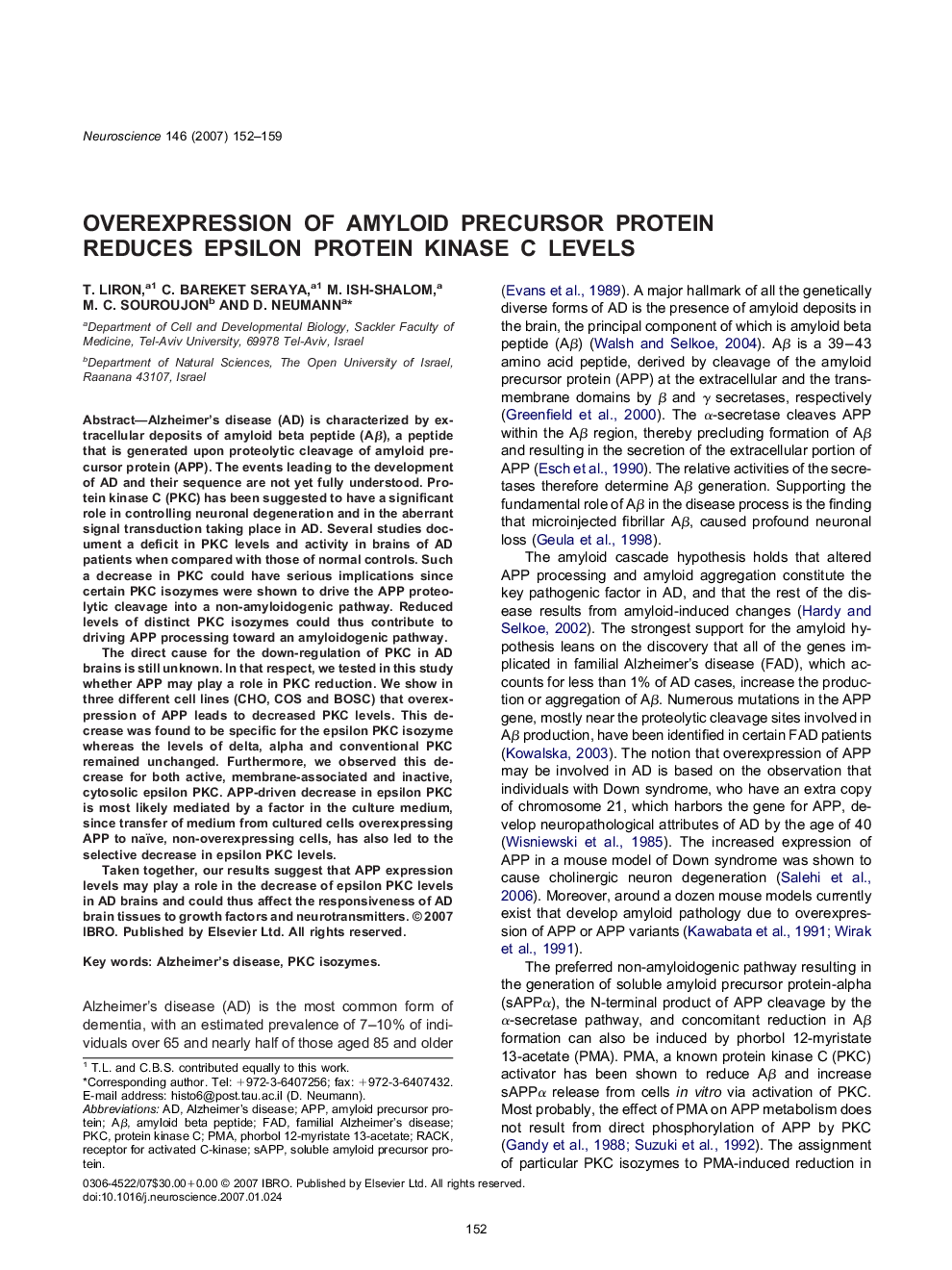| کد مقاله | کد نشریه | سال انتشار | مقاله انگلیسی | نسخه تمام متن |
|---|---|---|---|---|
| 4340979 | 1295818 | 2007 | 8 صفحه PDF | دانلود رایگان |

Alzheimer’s disease (AD) is characterized by extracellular deposits of amyloid beta peptide (Aβ), a peptide that is generated upon proteolytic cleavage of amyloid precursor protein (APP). The events leading to the development of AD and their sequence are not yet fully understood. Protein kinase C (PKC) has been suggested to have a significant role in controlling neuronal degeneration and in the aberrant signal transduction taking place in AD. Several studies document a deficit in PKC levels and activity in brains of AD patients when compared with those of normal controls. Such a decrease in PKC could have serious implications since certain PKC isozymes were shown to drive the APP proteolytic cleavage into a non-amyloidogenic pathway. Reduced levels of distinct PKC isozymes could thus contribute to driving APP processing toward an amyloidogenic pathway.The direct cause for the down-regulation of PKC in AD brains is still unknown. In that respect, we tested in this study whether APP may play a role in PKC reduction. We show in three different cell lines (CHO, COS and BOSC) that overexpression of APP leads to decreased PKC levels. This decrease was found to be specific for the epsilon PKC isozyme whereas the levels of delta, alpha and conventional PKC remained unchanged. Furthermore, we observed this decrease for both active, membrane-associated and inactive, cytosolic epsilon PKC. APP-driven decrease in epsilon PKC is most likely mediated by a factor in the culture medium, since transfer of medium from cultured cells overexpressing APP to naïve, non-overexpressing cells, has also led to the selective decrease in epsilon PKC levels.Taken together, our results suggest that APP expression levels may play a role in the decrease of epsilon PKC levels in AD brains and could thus affect the responsiveness of AD brain tissues to growth factors and neurotransmitters.
Journal: Neuroscience - Volume 146, Issue 1, 25 April 2007, Pages 152–159